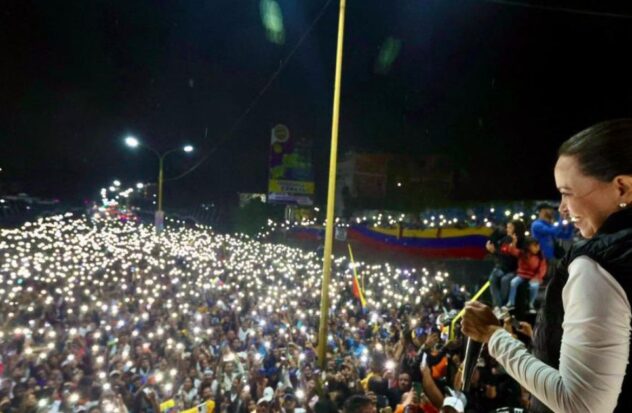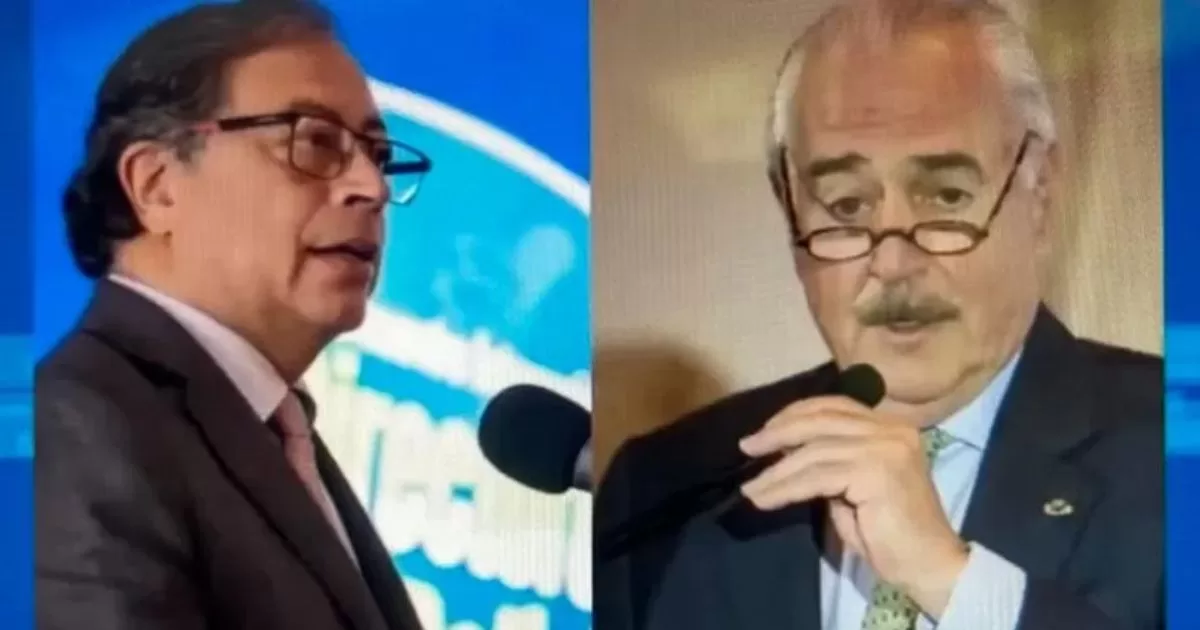CARACAS.- A young man cries as he watches her pass by, others rush to the truck carrying her, many wave flags as she passes and some even call her “Liberator”: although ineligible, Maria Corina Machado It awakens an almost religious feeling in Venezuela.
Machado, 56, who was born in Caracas, is touring the country under the banner of “change” after 25 years of Chavista regimes and an accumulation of disappointments from the traditional opposition leadership, from which she has often distanced herself and even been a divisive factor.
His supporters highlight his “coherence”, his lack of half measures, and his promise to end the socialism of the so-called Bolivarian Revolution to make way for a liberal system.
“To expropriate is to steal”
An engineer by profession and mother of three children, Machado began her political career in 2002, when she created the organization Súmate, which promoted a referendum to revoke the mandate of then-president Hugo Chávez (who died in 2013), and continued to Parliament, where she confronted that president when he was untouchable, almost a God.
“To expropriate is to steal,” he complained to Chavez during his annual accountability before Parliament in 2012. “I suggest that he win the primaries because he is out of the ranking to debate me,” the president replied. “An eagle does not hunt flies,” Chavez remarked at the time.
A decade later, Machado did it, and experts compare her as a political phenomenon with the influence that Chávez himself had.
In October, she consolidated her position as the leader of the opposition by sweeping the primaries to be the candidate against Nicolás Maduro on July 28. She garnered more than 90% of almost 3 million votes.
But his presidential candidacy was thwarted by a 15-year political disqualification that the Supreme Court of Justice (TSJ), controlled by Maduro, ratified in the midst of negotiations between the regime, the opposition and the United States, also a protagonist in the process, due to electoral conditions.
Edmundo González Urrutia represents her on the ballotregistered at the last minute after other options were vetoed.
“Our liberator”
Although she is not on the ballot, she is the face of the campaign. She has been traveling around the country for months, by car because Chavismo does not allow her to board a plane. And at each stop she is greeted by enthusiastic crowds.
“She is our liberator,” said Trina Rosales, 60, after a massive caravan in San Cristóbal (Táchira state, west). “She is our hope, our freedom,” added her daughter Michelle Rosales, 40.
Sitting on the windshield, she greets everyone who reaches out to shake her hand. She ends up with bruises on her arms and sore hands. But she doesn’t change her routine: she lifts children, hugs the elderly, talks about hope and reunion.
“We will achieve the liberation of our country, we will bring our children back home”said Machado alongside González at the official launch of the campaign in Caracas.
Some 7 million Venezuelans have emigrated since 2014 amid the crisis. It is a reality that affects her directly: her children – Ana Corina, Henrique and Ricardo – live abroad and she is prohibited from leaving the country.
Many times, a video call is the only form of communication.
“She kisses her phone when she receives a message or talks to them,” said her right-hand woman, Magalli Meda, before taking refuge in the Argentine embassy after being accused of conspiracy by the regime, which is pursuing members of her campaign.
“Until the end”
Maduro often attacks Machado, who he calls the “cursed caste of surnames” of “oligarchic” families. And although Machado comes from a well-off family, she is not one of the richest.
The number two of Chavismo, Diosdado Cabello, also tends to mock her with names like “María con ira” or “La sayona”, a spirit that is a legend in Venezuelan folklore and that, like the leader, has white skin and straight black hair.
She is also accused of being a “lackey” of the United States for defending a free market economy and proposing the privatization of Petróleos de Venezuela (PDVSA), the country’s main source of income.
But Machado ignores the insults of the regime’s leaders and continues to work for the unity of Venezuelans. Her slogan “until the end” has become her mantra and, certain that the opposition will emerge victorious in the elections, she promises to “collect” every last vote.
Source: With information from AFP


